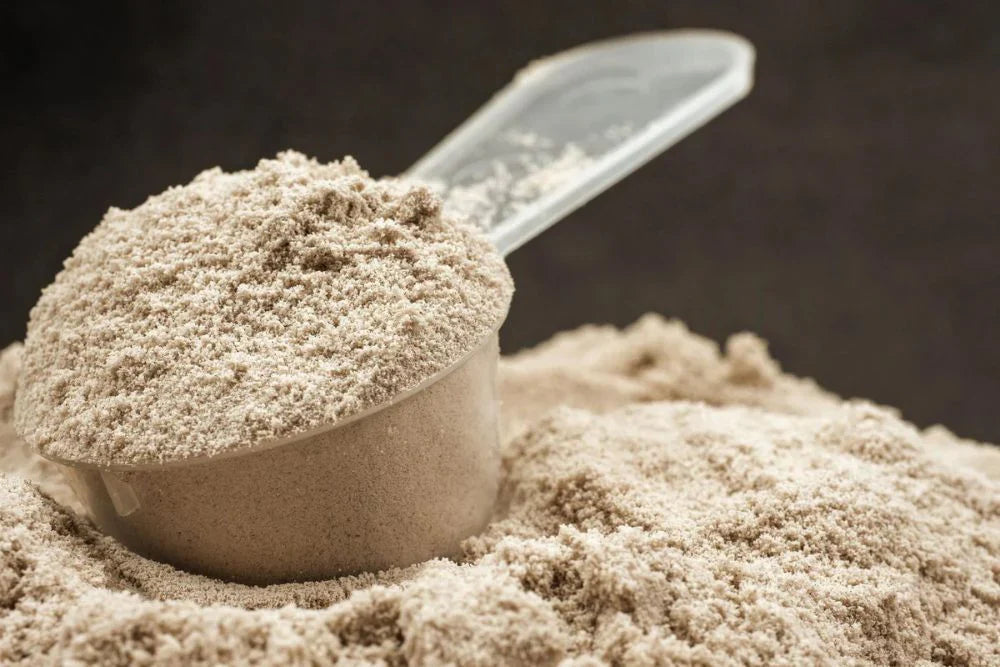
Exploring the Varieties of Whey Protein: Which One Is Right for You?
Exploring the Varieties of Whey Protein: Which One Is Right for You?
Whey protein has gained popularity as a nutritional supplement due to its numerous health benefits, particularly in muscle building and recovery. However, there are different types of whey protein available, each with its own set of characteristics and benefits. In this blog, we'll delve into the various types of whey protein to help you make an informed choice.
Whey Protein Concentrate (WPC):
WPC is the least processed form of whey protein. It contains a lower percentage of protein (typically around 70-80%) and retains more of the beneficial nutrients found in whole whey, such as immunoglobulins and lactoferrin. It also contains some amount of fats and carbohydrates.
Whey Protein Isolate (WPI):
WPI undergoes further processing to remove most of the fats and carbohydrates, resulting in a product that is about 90% or higher in protein content. This makes it a popular choice for those looking to increase their protein intake without additional calories from fats and carbs.
Whey Protein Hydrolysate (WPH):
WPH is pre-digested or partially hydrolyzed, which means it undergoes partial enzymatic breakdown. This makes it easier for the body to absorb and is often used in medical protein supplements and infant formulas due to its hypoallergenic properties.
Native Whey:
Native whey is produced directly from skim milk, rather than as a byproduct of cheese production. It is considered to have a higher quality protein profile compared to regular whey, as it undergoes minimal processing.
Casein and Whey Blend:
This blend combines both whey and casein proteins. Casein is slower-digesting, providing a sustained release of amino acids, while whey offers a quick spike in protein levels. This combination can be ideal for promoting muscle growth and recovery.
Plant-Based Whey Alternatives:
For individuals who follow a vegan or lactose-free diet, plant-based protein options like pea, rice, hemp, and soy proteins serve as alternatives to traditional whey protein.
Conclusion:
The type of whey protein you choose should align with your specific dietary needs, fitness goals, and any allergies or intolerances you may have. Consulting with a healthcare professional or registered dietitian can provide personalized guidance on selecting the right whey protein for you. Remember, a balanced diet and regular exercise are key components of a healthy lifestyle, regardless of your protein source.


